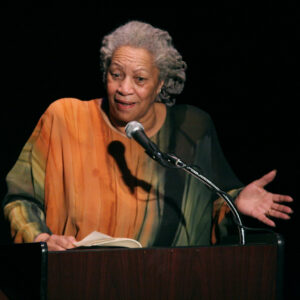
Charles Frazier Remembers Jim Harrison
His Books Make Life Feel More Consequential
When Harrison’s first novel came out in 1971, I was a sophomore at Chapel Hill. Should have been studying, but instead I slouched in a smelly library armchair reading a review of Wolf in the New York Times. Three minutes later, I had to have that book. Immediately. Buying a new hardcover was a long stretch when your entire weekly budget for necessities—meals and records and books—was twenty dollars, but I bought it. I’ve probably read Wolf six or eight times since then, mostly when I need to remind myself why trying to be a writer seems like an interesting idea. And I haven’t missed a Harrison book in forty-five years. All of it—fiction, poetry, essays. Multiple copies of some books just to make sure I always have one near at hand. Glancing up from my desk right now, a paperback copy of Dalva sits on a table six feet away. It’s the top book in a pile. My first edition of Legends of the Fall sits on the shelf crooked and shabby and worthless to collectors from hard use. A couple of months ago I pulled Just Before Dark from the shelves to reread a shambolic and shamanic essay about getting lost in the woods. All those beautiful books with their beautiful Russell Chatham covers.
So, how do you meet a hero? Out on my first ever book tour—at a literary festival or maybe BEA—I ran into Harrison. I put out my hand, trying to remind myself to be brief in saying how much his work means to me. No boring babbling. Keep it to a dozen words. He pushed my hand away and moved in and gave me a bear hug. The first thing he said was, Don’t worry about Inman. He’s not dead. He’s staying at my cabin up in Michigan. Later that weekend, over a meal, he passed along sage book-tour wisdom: Take an afternoon nap. Always eat a real breakfast, and lay down a solid foundation of pork.
A few years later, I introduced Harrison at a reading near Chapel Hill. Several hundred folks showed up on a Saturday morning, and I got to say in public some of what I have not just admired about his work but have loved—the big heart, big appetite, big despair, big joy that lives on every page. That reading his work makes me feel like the world has expanded. Nothing minimal about Harrison’s writing. The same feeling I get reading Kerouac—that their books make life seem more consequential, more valuable. After the book event, we went to a roadside barbecue joint. Order at a counter, eat at a picnic table. Cars and trucks rolling by fifty feet away on 501. Elisabeth and Judy from Grove Atlantic, Katherine and Annie and me, Jim. We all had really good chopped pork smoked over woodfire, coleslaw, maybe hushpuppies. When we finished and began balling up our napkins and paper plates to throw in the trash, Harrison said, Would it be wrong to have another? And he did.
That night, we all convened at a fancier restaurant. First bite of the appetizer, Jim groaned with pleasure. We’d arranged a meeting between Harrison and Reynolds Price. When they were young writers, they had corresponded but never met. It turned out to be the kind of night when you shut the hell up and listen. By dessert, Jim and Reynolds were holding hands, reenacting a scene from The Bride of Frankenstein.
Right this minute—purely as a reader—hearing of Jim Harrison’s death only a few hours ago, the world feels as if it has suddenly gotten a size smaller. It’s going to be a while before I learn to stop expecting a new book every year or two and reconcile to being thankful for the rich, expansive body of work he’s left us.
Watch: A few months before Jim Harrison’s death, Grove Atlantic associate publisher Judy Hottensen was able to spend the day with the award-winning writer.
Charles Frazier
Charles Frazier grew up in the mountains of North Carolina. Cold Mountain, his highly acclaimed first novel, was an international bestseller, and won the National Book Award in 1997.



















